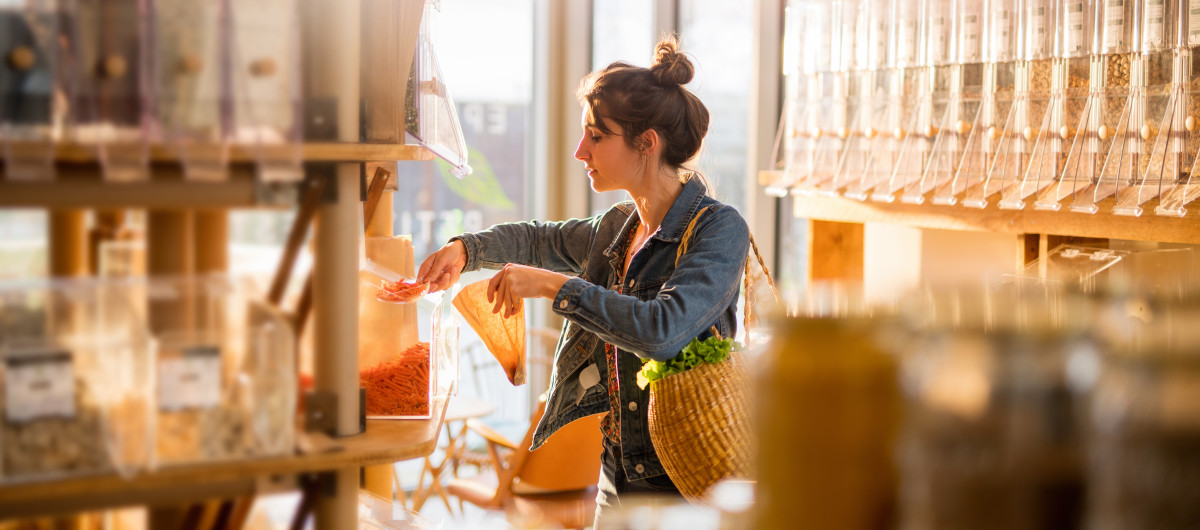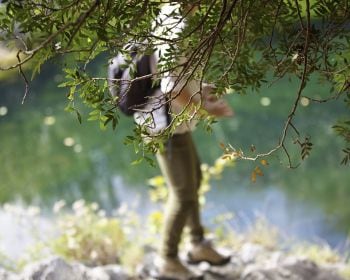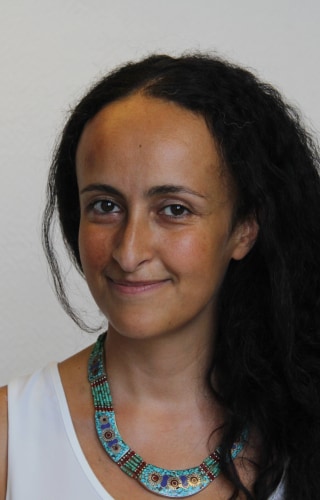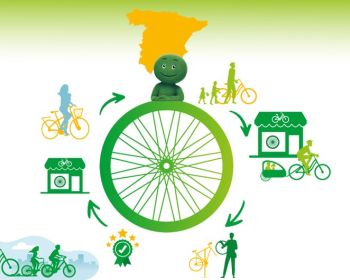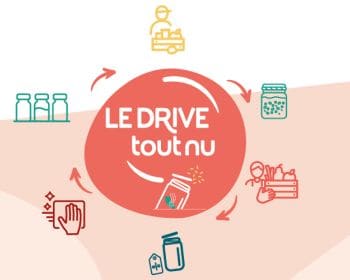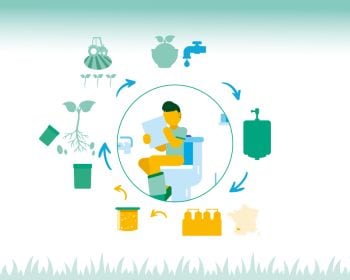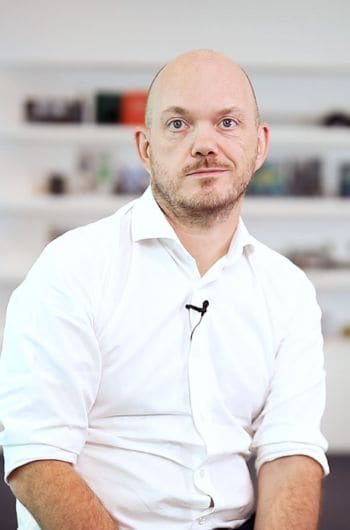Circular economy
By promoting “green consumption” through business models based on the recovery and reconditioning of end-of-life products, the circular economy reduces the use of non-renewable resources and the production of waste.
A more virtuous economic model
From linear to circular, a necessary transition
The circular economy, an essential component of sustainable finance, is based on a simple idea: instead of extracting, manufacturing, consuming and then throwing away - the linear economy - we should now reduce, reuse, recycle. What does this mean in concrete terms? Favouring recycled materials, preferring recondited articles to new purchases, acquiring the use of an item rather than the item itself, ensuring waste reduction... By placing product life cycles at the at the core of our approaches to reducing the use of limited natural resources, it is possible to make tangible progress towards the ecological transition.
Public policies and official regulations on the circular economy
In recent years, the circular economy has appeared in official texts. It is the twelfth of the 17 UN Sustainable Development Goals (SDGs) (“Responsible Consumption and Production”) and is also supported by an increasing number of public policies. Countries such as China or Japan have included circular economy in their national development goals; the United States passed the “Save Our Seas 2.0” law in December 2020... In March 2020, the European Commission adopted the “Circular Economy Action Plan”, which is defined as follows: “The new Circular Economy Action Plan shows the way forward to a climate-neutral and competitive economy in which consumers have a voice.” This was followed in July by the UK and its Circular Economy Package.
France drew up its roadmap for the circular economy in 2018, before enacting a law on the fight against waste, and about circular economy in February 2020. Among its targets: to create 300,000 jobs, to generalise the recycling of plastics with an aim for 100% by 2025, and to achieve a 60% repair rate for electrical and electronic products within five years.
The circular economy is also one of the topics covered by the European CSRD (Corporate Sustainability Reporting Directive) which requires companies to report from 2025 on the 2024 data on how sustainable development issues (e.g. climate change) impact their business and in turn during their operations affect people and the planet.
The role of major economic players
Industrial, agri-food or textile groups, all sectors are concerned... including banking which supports the transition towards a more circular economy via its financing and investments.
BNP Paribas adopted an internal definition of the circular economy as of 2019, allowing the entire Group to rely on the same benchmark and thus ensure the consistency of its financing and investments.
reminder of the bnp paribas group's definition
The ultimate goal of the circular economy is to reduce both the consumption of raw materials and the production of waste. Circular solutions must reduce the negative impacts on the environment.
The circular economy refers to an economic system in which the value of products, materials and other resources in the economy is maintained for as long as possible (i) by improving their efficient use in the production and consumption process (i.e. thereby reducing the environmental impact of their use), and (ii) by minimising the generation of waste and the release of hazardous substances at all stages of their life cycle, including through the application of the waste treatment hierarchy.
More specifically, and where the solution reduces the environmental impact, the circular economy refers to:
- Circular Design: designing products to reduce the consumption of materials (including hazardous or toxic materials) and/or to facilitate recycling, reuse or extended life.
- Circular procurement: replacing virgin materials with recycled materials or 100% recyclable materials.
- Extending product life: reusing, repairing, refurbishing and/or reselling products to extend their useful life.
- Sharing model: optimising the use of a product to reduce the production of new ones.
- Functionality economy (PaaS): model of subscription in exchange for the service provided by a product, the ownership of which remains with the supplier.
- Recycling of materials and resources: collection with intent to recycle and recycling.
- Circular Economy Accelerator & Facilitator: accelerators facilitating the transition to a circular economy (i.e. key technologies such as innovative ICT solutions).
The circular economy is key to achieve a carbon-neutral economy by 2050. Not only does it have a positive impact on the environment, but it can also bring economic and social benefits.
Supporting organizations in their transition
In order to reduce the consumption of non-renewable raw materials and waste production, BNP Paribas continues to support the development of the circular economy by granting loans.
For example, BNP Paribas participated as global coordinator in Carrefour's first bond issue to support the food transition. This €1.5 billion issue has two objectives for 2025: the reduction of packaging and food waste.
For its part, the Commercial & Personal Banking in France (BCEF) has contributed €3.3 million to the creation of the La Fonte Ardennaise foundry sand reclamation plant, an innovative project that recycles 90% of black moulding sand, conserving natural resources, eliminating sand waste from landfills and reducing CO2 emissions by 20,000 tonnes per year.
It's a bold gamble led by the Ademe to address the challenges of the circular economy through impact contracts! Some remarkable, innovative projects will grow thanks to this pioneering initiative. They will help fight against food waste (Linkee and Andes) or provide a response to unfilled needs for medical equipment at solidarity prices (Envie Autonomy). We are delighted to be part of the adventure and to support the creation of contracts with an environmental impact!
Product as a service
Renting an item rather than buying it – or buying the use of an item rather than the item itself, known as “product as a service” – is an important lever in the circular economy.
Choosing to rent professional equipment rather than buying it is a key aspect of the circular economy. Companies that opt for leasing or “Pay As A Service” solutions can use assets without the risks associated with ownership, such as end-of-life equipment management. BNP Paribas Leasing Solutions helps its customers adopt sustainable procurement practices by ensuring that end-of-life devices are either refurbished and reused or recycled. Our subsidiaries BNP Paribas 3 Step IT (IT fleets) and BNP Paribas Artegy (industrial vehicles) offer complete lifecycle management solutions for their assets, while simplifying acquisition and lifecycle management, as well as reconditioning and reuse.
Sustainable financial investments
At the heart of the support that the banking sector can provide to the circular economy are of course investment products.
As a pioneer, BNP Paribas Asset Management launched from May 2019 the BNP Paribas Easy ECPI Circular Economy Leaders fund dedicated to the circular economy, with more than €900 million assets under management at the end of 2023: a great success for this first circular economy ETF in the world, which shows how much this field appeals to investors.
In the real estate sector, the circular economy applies equally to the design, construction, management and occupation of buildings. BNP Paribas Real Estate applies eco-design to buildings and recycles waste in its projects, such as the construction of its METAL57 headquarters, and shares its expertise by participating in collective actions through the Circolab association and Reuse Booster.

